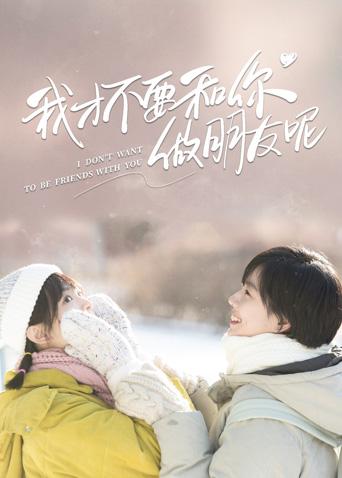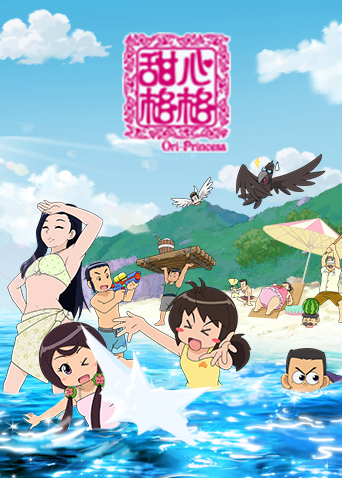 杰珂
杰珂
发表于3分钟前回复 :1980年的春天把坐落在黄海边的西瓜岛装扮得格外美丽。胸前佩戴着军功章的金大山从部队复员,回到了家乡。当晚,未来的岳母把大山叫到家中,为他接风。乡亲们把三间小屋挤得满满的。对大山的归来,村里的每一个人肚里都有一个小九九,大山爹老西瓜,未婚妻向秋想让大山进城找个工作,村里的年轻人却盼着他担任即将成立的西瓜副业队长,把在"文革"中受了委屈的老西瓜请出来,大干一场,恢复西瓜岛的声誉。看着伙伴们充满信任的眼睛,大山心里热乎乎的,爽快地答应了担任副业队长的要求。可却引起了向秋的不满,向秋责怪他不该把自己锁在农村,大山据理力争,两人不欢而散。大山请爹担任技术指导,老西瓜不答应。青岛长青果品店的崔经理与老西瓜做了交易,如老西瓜肯指导种瓜,供应青岛,大山和向秋就能进城做工。老西瓜爱子如命,终于答应。但老西瓜和崔经理的谈话,被路过的快嘴苏婶听得一字不漏。老西瓜正领青年们整地种瓜,苏婶大闹西瓜地。大山退掉合同,向秋一气之下,独自到青岛当合同工。大山顶住了压力,带领青年起早贪黑地种瓜,老西瓜受到感动,主动回到了种瓜的行列。向秋在城里结识了一个自称是部队文工团导演的军人,幻想着有一天去当部队文工团员。大山听到消息,心中十分矛盾,他写信给向秋,表明了自己的理想和真情。向秋看着这一封封滚烫的信,十分感动。收获的季节到了,副业队种的西瓜取得了大丰收,人人喜笑颜开。同时,巨大的打击落在向秋头上,原来那个"导演"是个走私犯。向秋后悔莫及无地自容。大山写信叫向秋回家,向秋终于踏上了归途。西瓜开园的爆竹炸响了,一块块殷红的西瓜,一张张欢乐的笑脸,一对对翩翩起舞的青年,都好像在迎接着向秋的归来。
 曾爱玲
曾爱玲
发表于8分钟前回复 :Siddartha (Dhritiman Chatterjee) is forced to discontinue his medical studies due to unexpected and brutal death of his father. He has to now find a job in stead. In one job interview, he is asked to name the most significant world event in the last ten years. His reply is 'the plain human courage shown by the people of Vietnam', instead of the expected - man landing on moon. The interviewer asks is he is a communist. Needles to say that he does not get the job.He reaches a coffee shop where he is offered to work for the communist party. When he does not show any interest the party leader tells him about an opening for a medical representative. To escape from the heat and have a snooze, he goes in to a cinema. As a government propaganda newsreel is being shown before the feature, a bomb explodes in the cinema hall. In the stampede that follows, Siddartha, breaks his watch. He goes to a watchmaker but he cannot afford the repairs.Waiting to cross the road, he notices a sexy girl. He drifts back to his days as a medical student in a flashback. The professor is explaining anatomy of female breast. Many flashbacks and dreams occur to Siddartha through the film.On his way to hostel, he has an encounter with some hippies. Along with an ex-classmate, he goes out to see a porn film but to their disappointment, the film turns out to be not-so-pornographic.In such constant wandering in a Calcutta, disintegrated relationships with his sister and a Naxalite (militant communist) brother, his friendship with Keya is only thing that keeps him sane.Keya is a simple girl. They enjoy each other's company but they cannot make any commitment to each other due to the circumstances.After yet another attempt at a job interview, Siddartha leaves the big city to take a modest job of a salesman in a far off small town. He writes to Keya that he still cherishes their relationship. And that he has heard that bird call again but this time it is for real, and not his mind. After completing the letter, he comes out to the balcony of his modest room. The bird calls again. He also hears the sombre chants of a funeral procession. As he turns to the camera, the picture is frozen.This is the first film of the Calcutta Trilogy. The other two were and Seemabaddha (Company Limited, 1971) and Jana Aranya (The Middle Man, 1975). All the three films study the effect the big city of Calcutta has on the educated youth and the price it extracts from them.The seventies were a difficult period for India and West Bengal. The Corruption was rampant; the Naxalite movement had created havoc in Calcutta. In fact, they had turned parts of Calcutta into 'liberated zones'. By the time the Naxalite movement died down, in 1975, Mrs. Indira Gandhi (then, Prime Minister of India) suppressed the fundamental rights and declared "Emergency" for her own political survival. Her son, Sanjay Gandhi became a dictator of sorts without any official designation. The opposition leaders were thrown into prisons.About his social responsibilities as a filmmaker, in an interview with Cineaste magazine, Ray commented, "You can see my attitude in The Adversary where you have two brothers. The younger brother is a Naxalite. There is no doubt that the elder brother admires the younger brother for his bravery and convictions. The film is not ambiguous about that. As a filmmaker, however, I was more interested in the elder brother because he is the vacillating character. As a psychological entity, as a human being with doubts, he is a more interesting character to me. The younger brother has already identified himself with a cause. That makes him part of a total attitude and makes him unimportant. The Naxalite movement takes over. He, as a person, becomes insignificant."In a letter to Seton in 1970, Ray wrote that Pratidwandi was the most provocative film he had made till then. The film is said to have evoked extreme reactions. "People either loved the film or hated it", Dhritiman Chatterjee told Andrew Robinson, Ray's biographer.




